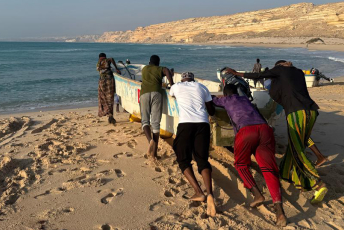State parties to a unique wildlife law-enforcement mechanism have agreed to re-energise it and scale up membership to the initiative. While the Lusaka Agreement on Cooperative Enforcement Operations Directed at Illegal Trade in Wild Fauna and Flora is relatively unknown, this cross-border mechanism can lead to real gains.
The agreement came into force in December 1996, after four states ratified it. Following a ministerial meeting in May this year in Nairobi, four additional states are set to accede to the agreement. It has since been ratified by three others, while three more are signatories.
Parties to the agreement currently include the Republic of Congo, Lesotho, Liberia, Kenya, Tanzania, Uganda and Zambia. Apart from these parties, which have ratified the agreement, Ethiopia, South Africa and Swaziland are signatories. Incoming director Edward Phiri says that states which are not yet members are still encouraged to accede. The agreement remains open to all non-member African states.
Key decisions made at the May meeting included transforming the agreement into a more efficient and effective instrument; and channelling more funds to the core mandate of its operational arm – the Lusaka Agreement Task Force (LATF).
A re-energised LATF could become a key pillar in Africa’s response to transnational organised wildlife crime. The newly elected president of the 12th Lusaka Agreement Governing Council, Charles Banda, said that his bureau was elected at a time when ‘support from parties to Lusaka Agreement is more needed than ever’. At the meeting, the Zambian minister for tourism and arts expressed confidence that the Lusaka Agreement will become ‘a key instrument in the fight against transnational organised wildlife crime in Africa and beyond.’
In addition to carrying out unique cross-border wildlife enforcement activities, the LATF also controls and maintains the Wildlife Enforcement Monitoring System database. This is an environmental governance project that monitors and identifies trade routes and provides location analysis for the illegal trade and poaching of wildlife. The database allows for information sharing between national enforcement agencies that attend to wildlife crime within the country, and also among regional networks.
According to outgoing LATF director, Bonaventure Ebayi, cooperative enforcement activities over the past year included intelligence-gathering, enforcement operations, joint international investigations and follow-up on cases within the member states. These cross-border law enforcement activities led to the arrest and prosecution of over 30 high-profile wildlife criminals in 2017 and 2018 alone, both within member states and non-member states including Burundi, the Democratic Republic of Congo (DRC), Gabon, Malawi, Rwanda and South Sudan.
LATF officers are afforded diplomatic immunity and other privileges, making it easier to conduct international operations within member states and through strategic partnerships. The LATF has also managed to extend investigations beyond Africa into countries like China, Singapore, Thailand, Taiwan, Philippines, Hong Kong and Vietnam.
In April last year, the LATF investigated the seizure of 3.8 tons of pangolin scales in Vietnam, originating from the DRC, as well as cases of CITES permit fraud – with more than 10 suspects arrested in Kinshasa. In the Congo, five key suspects were arrested and successfully prosecuted in connection with 28 elephant tusks seized in Bangkok last year (originating from Brazzaville).
The LATF also collaborates with international organisations like INTERPOL and the World Customs Organisation to carry out law-enforcement operations beyond wildlife crime investigations. This leads to the detection of other crimes, such as arms and drug trafficking.
The LATF holds a unique position in encouraging an intra-state response to wildlife crime in Africa. The new leadership has set out to convince additional African states to accede to the agreement by May 2020, when the next governing council meeting will take place in Lusaka, Zambia. With additional accession and robust donor support, its many goals can become a reality.
Deo Gumba, ENACT Regional organised crime observatory coordinator – East and Horn of Africa, ISS.







